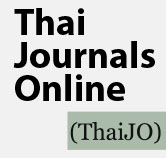
การใช้ภาษาสุภาพในการขอร้อง : การสื่อสารในกลุ่ม นายทหารสัญญาบัตร
THE USE OF POLITE LANGUAGE TO FULFILL A REQUEST: COMMUNICATION IN COMMISSIONED OFFICERS
โดย ธนิดา พรหมประสิทธิ์ / By Thanida Phromprasit
Damrong Journal, Vol 10, No.1, 2011
บทคัดย่อ:
บทความนี้มีวัตถุประสงค์เพื่อศึกษากลวิธีแสดงความสุภาพในการขอร้องในกลุ่มทหารสัญญาบัตร ด้วยวิธีเก็บข้อมูลการสัมภาษณ์นายทหารสัญญาบัตรระดับชั้นยศร้อยตรี - ร้อยเอก โดยคัดเลือกเฉพาะนายทหารที่สำเร็จการศึกษาจากโรงเรียนนายร้อยพระจุลจอมเกล้า โรงเรียนนายเรือ และโรงเรียนนายเรืออากาศ จำนวนเหล่าทัพละ 30 นาย รวม 90 นาย ด้วยแบบสัมภาษณ์ที่เป็นสถานการณ์สมมติและให้เติมบทสนทนาให้สมบูรณ์
จากการศึกษา พบกลวิธีในการขอร้องของกำลังพลกองทัพไทยทั้งสิ้น 8 กล วิธี ได้แก่ 1.การกล่าถึงเหตุจำเป็นหรือความต้องการของตน 2.การกล่าวแสดงการขอบคุณ 3.การสารภาพตามตรง 4.การกล่าวคำถาม 5.การกล่าวให้ทางเลือกที่ดีกว่า 6.การกล่าวถามความสมัครใจ 7.การกล่าวเสนอการตอบแทน และ 8. การกล่าวแสดงความรู้สึกเกรงใจ
กลวิธีการกล่าวถึงเหตุผลจำเป็นหรือความต้องการของตน เป็นผลวิธีแสดงความสุภาพในการขอร้องที่ปรากฏมากที่สุด ซึ่งสามารถอภิปลายได้ว่า กลวิธีการกล่าวถึงเหตุผลที่จำเป็นหรือความต้องการของตน โดยที่ไม่มีคำอธิบายหรือเงื่อนไขอื่นมาประกอบการขอร้อง เป็นกลวิธีที่ผู้พูดรู้สึกว่าแสดงออกถึงความจริงใจ และความจำเป็นในการขอร้องมากที่สุด ด้วยการนำเสนอปัญหา เหตุจำเป็น หรือความต้องการของตน ให้ผู้ฟังรับทราบโดยตรง โดยปราศจากการแนะนำหรือสอดแทรกความคิดเห็นส่วนตนลงไป ทั้งนี้เพื่อให้ผู้ฟังรับรู้ถึงความสำคัญ และความจำเป็นในการขอร้องครั้งนี้อย่างจริงใจ ตรงไปตรงมา เพื่อให้ผู้ฟังพิจารณาตัดสินใจเองว่าจะสนองตามคำขอร้องนั้นหรือไม่
ABSTRACT:
This article aims to study the use of polite language to fulfill a request used by commissioned officers by interviewing the key informants of 90 officers in the Royal Thai Armed Forces o graduated from Chulachomklao Royal Military Academy, Royal Thai Naval Academy and Royal Thai Air Force Academy only.
According to this study, eight strategies of using polite language to fulfill requests were found as follows: 1.Expressing the speaker’s necessity or the speaker’s point. 2.Expressing the speaker’s gratefulness to the hearer 3.Telling the truth. 4.Asking questions. 5.Offering better choices. 6.Asking for the hearer’s conveniences. 7.Offering gifts. 8.Expressing the speaker’s considerations.
This study indicated that the most frequent strategy is expressing the speaker’s necessity or the speaker’s point without any conditions. This strategy can explain the speaker’s sincerity and the importance of the speaker’s appeal by presenting the speaker’s problem, necessity or the point, to the hearer directly, without any suggestion or any personal opinion. This is done in order to show the hearer how sincere the speaker is and how necessary the problem is, so that the hearer
can consider by himself whether the hearer should give response in acceptance or rejection.











